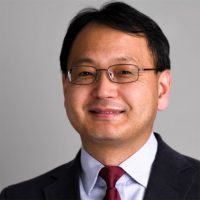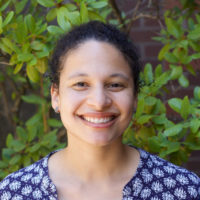Each year, the American Geophysical Union celebrates individuals who have made significant contributions to the Earth and space sciences. Of the 2025 honorees, three scientists in the Department of Earth and Space Sciences have been awarded prestigious honors. This year’s meeting will take place in mid-December in New Orleans, Louisiana.
AGU Fellows

ESS Professor Dr. Fang-Zhen Teng was inducted into the AGU Fellows program for his pioneering research on isotopic ratios in rocks and minerals, providing new insights into how Earth and other planets formed and evolved.
The AGU Fellows program recognizes members who have demonstrated scientific eminence and made exceptional contributions to Earth and space science through a breakthrough, discovery, or innovation in their field. Fellows also serve as external experts, advising government agencies and other organizations on critical issues.
“I am deeply honored to receive this fellowship and grateful to the colleagues who nominated me,” said Teng. “This wouldn’t be possible without the incredible mentors, colleagues, students, postdocs, and friends I’ve had the privilege to work with. I feel so lucky to be part of such a supportive community!”
Professor Teng’s work has not only introduced new ways of analyzing isotopic ratios in rocks and minerals but also used these isotopic “fingerprints” to answer big questions about how Earth and other planets formed and evolved. His research offers fresh insights into the history of our planetary crust, large-scale mantle heterogeneity, the origins of magma, and even the early days of the solar system. Learn more about Fang-Zhen Teng and his research.
Teng has been widely recognized for his outstanding contributions, most recently as the 2025 F. Earl Ingerson Lecturer of the Geochemical Society, and as a fellow of the Geological Society of America, the Geochemical Society, and the European Association of Geochemistry.
Ronald Greeley Early Career Award in Planetary Science

Dr. Joshua Krissansen-Totton received the AGU Ronald Greeley Early Career Award in Planetary Science, recognizing his research on planetary habitability and the search for life beyond Earth. The award honors early-career scientists within six years of receiving their Ph.D. who have made significant contributions to planetary science.
Krissansen-Totton’s research group develops models of the interactions between planetary atmospheres, interiors, and biospheres to better understand the long-term evolution of rocky planets both within the solar system and beyond.
“I am thrilled and honored to have been selected for the Greeley Award!” Krissansen-Totton commented. “My research in planetary astrobiology applies geophysics, geochemistry, and geology to many different (exo)planetary bodies, and so I’m grateful that this expansive approach to planetary science is being recognized.”
Krissansen-Totton’s past research has explored the carbon cycle and climate of the early Earth, the potential habitability of ancient Venus, and the atmospheric evolution of rocky exoplanets such as those in the TRAPPIST-1 system, where model predictions are being tested with James Webb Space Telescope observations. Learn more about Joshua Krissansen-Totton and his research.
Hisashi Kuno Award

Dr. Michelle Muth won the AGU Hisashi Kuno Award, which recognizes an early career scientist for outstanding contributions to the field of volcanology, geochemistry, and petrology, for her research examining how volatile elements like water, chlorine, carbon, and sulfur affect the evolution of magmas on our planet. Over the last several years, Muth has focused particularly on how redox reactions between sulfur and magmatic compounds influence the crystallization of ore-forming minerals, the chemistry of volcanic gases, and the long-term evolution of Earth’s interior.
“To me, the most beautiful part of science is that it is a shared effort spanning many borders and generations. To know that my work is a valued part of that effort is an enormous honor,” said Muth on receiving the award. Learn more about Michelle Muth and her research.
AGU, the world’s largest Earth and space science association, celebrates individuals and teams through its annual Honors and Recognition program for their accomplishments in research, education, science communication, and outreach. These honorees have transformed our understanding of the world, impacted our everyday lives, improved our communities, and contributed to solutions for a sustainable future.
Drs. Teng, Krissansen-Totton, and Muth join a distinguished group of scientists, leaders, and communicators recognized by AGU for advancing science. Each honoree reflects AGU’s vision for a thriving, sustainable, and equitable future supported by scientific discovery, innovation, and action.
Congratulations Fang-Zhen, Joshua, and Michelle!